Search Results
Showing results 101 to 120 of 469
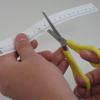
Exploring Size: Tiny Ruler
Source Institutions
In this activity, learners investigate just how small a billionth of a meter is by attempting to cut a paper ruler down to a nanometer-sized sliver.

Building Bingo
Source Institutions
In this on site "field trip" activity (located on pages 6-9 of PDF), learners get hands-on experience identifying building materials by playing "Building Bingo".

DNA Nanotechnology
Source Institutions
In this activity, learners explore deoxyribonucleic acid (DNA), a nanoscale structure that occurs in nature.
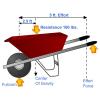
Find the Simple Machines
Source Institutions
This is a web activity about simple machines. Learners will explore a lawn mower and identify six different simple machines which work together to help make our lives easier.
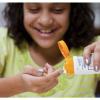
Invisible Sunblock
Source Institutions
In this activity, learners find out why some mineral sunblock rubs in clear. Learners compare nano and non-nano sunblocks and discover how particle size affects visibility.
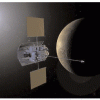
My Angle on Cooling: Effects of Distance and Inclination
Source Institutions
In this activity, learners discover that one way to cool an object in the presence of a heat source is to increase the distance from it or change the angle at which it is faced.
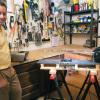
Model Wind Tunnel
Source Institutions
In this activity, learners build a miniature wind tunnel to measure force. Learners construct the model out of Lexan plastic, a fan, and a precise digital scale.
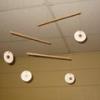
Rotational Equilibrium
Source Institutions
In this activity, learners explore the concept of rotational equilibrium. Learners work in teams to estimate and determine the force within a mobile design.
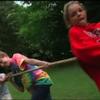
Tug-of-War
Source Institutions
This activity (on page 2 of the PDF under SciGirls Activity: Tug O' War) is a full inquiry investigation into tug-of-war physics. Groups of learners will test two tug-of-war strategies.

Wet Pennies
Source Institutions
Learners initially test to see how many drops of liquid (water, rubbing alcohol, and vegetable oil) can fit on a penny.
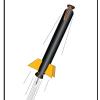
Foam Rocket
Source Institutions
In this activity, learners work in teams build and launch rubberband-powered foam rockets.

Balsa Towers
Source Institutions
Learners work in groups to design and build a tower out of balsa wood. As a motivator, they can compete to build a tower with the highest strength-to-weight ratio.
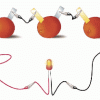
Electricity: Fruit Batteries
Source Institutions
In this activity, learners create a battery from fruit. This activity helps learners explore electricity, electrochemistry, and series circuits as well as the process of scientific inquiry.

Building a 3-D Space Maze: Escher Staircase
Source Institutions
In this activity (page 95 of the PDF), learners create Escher Staircase models similar to those that were used by Neurolab's Spatial Orientation Team to investigate the processing of information about
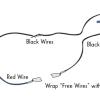
Neural Network Signals
Source Institutions
In this activity, learners create an electrical circuit and investigate how some dissolved substances conduct electricity.
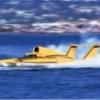
Fun with Speedboats
Source Institutions
In this activity, learners explore how boats are engineered to achieve speed.
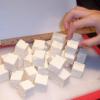
Exploring at the Nanoscale
Source Institutions
This lesson focuses on how nanotechnology has impacted our society and how engineers have learned to explore the world at the nanoscale.

Portable Sundial
Source Institutions
Learners construct one or more of the following kinds of sundials: a shadow plot, a horizontal sundial, and a diptych sundial.
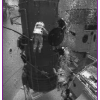
Weighty Questions
Source Institutions
In this activity about humans and space travel (page 1 of PDF), learners compare and contrast the behavior of a water-filled plastic bag, both outside and inside of a container of water.
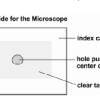
Making Regolith
Source Institutions
This lesson will helps learners answer the question: How does the bombardment of micrometeoroids make regolith on the moon?
